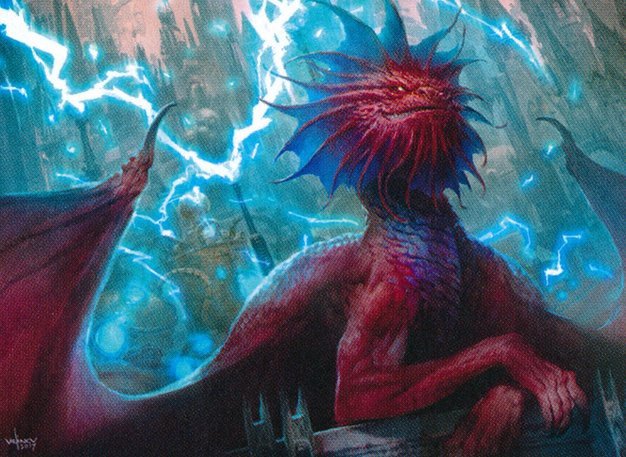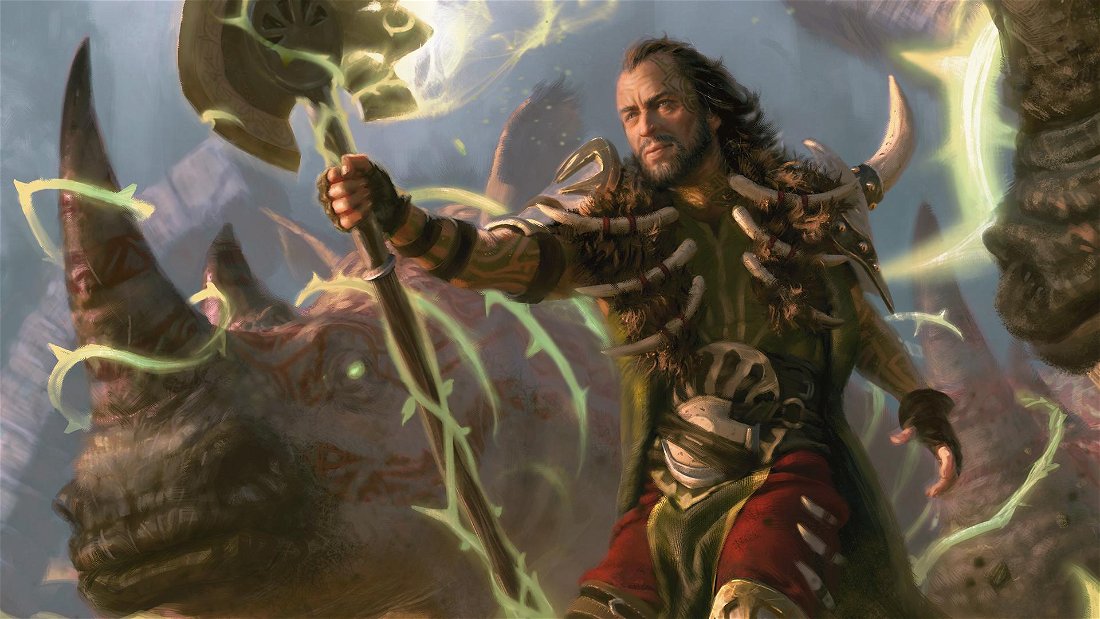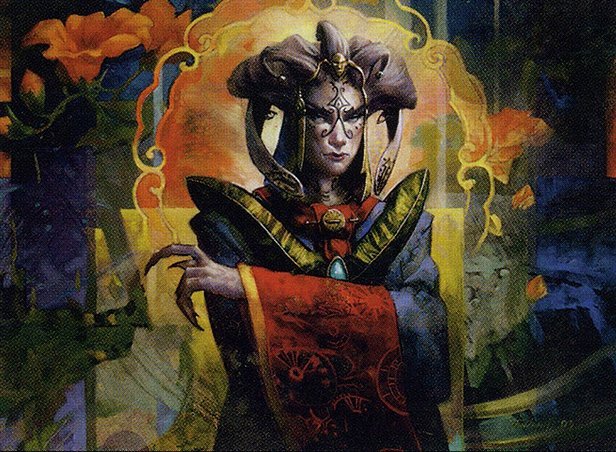Hello, my dears! How are you? My name is Fogaça and I'm here again to talk about Commander.
A while ago I wrote an article talking about how to start at cEDH. The purpose was to show a simple and consistent strategy for players who do not have an advanced knowledge of rules or who wanted a more accessible list on monetary issues. As I received good feedback from the community about the idea, I decided to continue with some commanders that I consider simple and linear for someone who meets the conditions described above, and thus fill in various archetypes that might attract the attention of the players. For starters, I chose Ravnica's hefty dragon: the Izzet leader who comes in his Niv-Mizzet, Parun version.

INITIAL CONCEPTIONS
Niv-Mizzet is special compared to other commanders. Its design was devised by the WotC R&D team during the Brawl age, being balanced as a general. Something that sets him apart and justifies his choice instead of his alter ego (Niv-Mizzet, the Firemind) is the interaction promoted by the opponents game, allowing us to have card advantage even when the opponents plays.
DECK CONSTRUCTION
To begin with, we would normally worry about our commander's entry into the match and we would use cancellations and other means of control to ensure that done, however, -Niz-Mizzet has the feature of not being undone, giving us room for a strategy where our counters and removals will be used as a control method for someone else's game.This fact will be allied with the purchases provided by our dear dragon and the possibility of table cleaning that he gives us, allowing us to play proactively while preventing our opponents from pursuing their strategies.
Now that we know that our posture will have a feature related to the archetype Tempo, we must identify our condition of victory. It will therefore derive from effects that allow us to draw cardswhen Parun deals damage to a player, to create a loop (our biggest and most classic example is Curiosity); damage will be reallocated to our opponents, and when we are close to the overdeck it will be directed to Niv-Mizzet himself, ending the cycle. We add Laboratory Maniac and Jace, Wielder of Mysteries, to guarantee our victory, as in some moments players will have more life than cards in our library.
Adjacent cards have the function of providing the necessary table control, besides giving consistency to our combo and making the most of Niv-Mizzet skills. I must point out that our mana base should ensure that the specificity of our general's mana cost is met, always promoting quality rather than quantity.
HIGH VALUE CARD REPLACEMENT
When you look at the list, what scares you most are letters like Snapcaster Mage and Force of Will, recurring figures here.The function of our deck will be well attended with a low curve and consistency in effects, but we don't need cemetery recursion, thus giving an optional character to our japa. Force of Will and its fellow counters can be altered by any other cancellations as long as they have a good mana cost in relation to their full effect.
WHERE TO START?
I never imagined that I would need to write about it, but in that case, It is extremely important to say that the main piece is the commander himself. Having it in hand, buying letters will be maximized, tutors and combos will work better and control will not be just that, so from the moment it is in your possession, any combination of the other functions of the deck may be used, provided there is a clear form of victory.
CONCLUSION
Therefore, after analyzing the arguments, it can be concluded that there are different ways to start in the format.
A competitive deck need not necessarily be full of expensive staples or have mind-boggling mechanics involved.
That's all for today. I thank everyone who has been following this series of articles and I ask you always leave your feedback to keep improving. Until next time, my dears!














— 코멘트 0
, 반응 1
첫 댓글을 남겨보세요